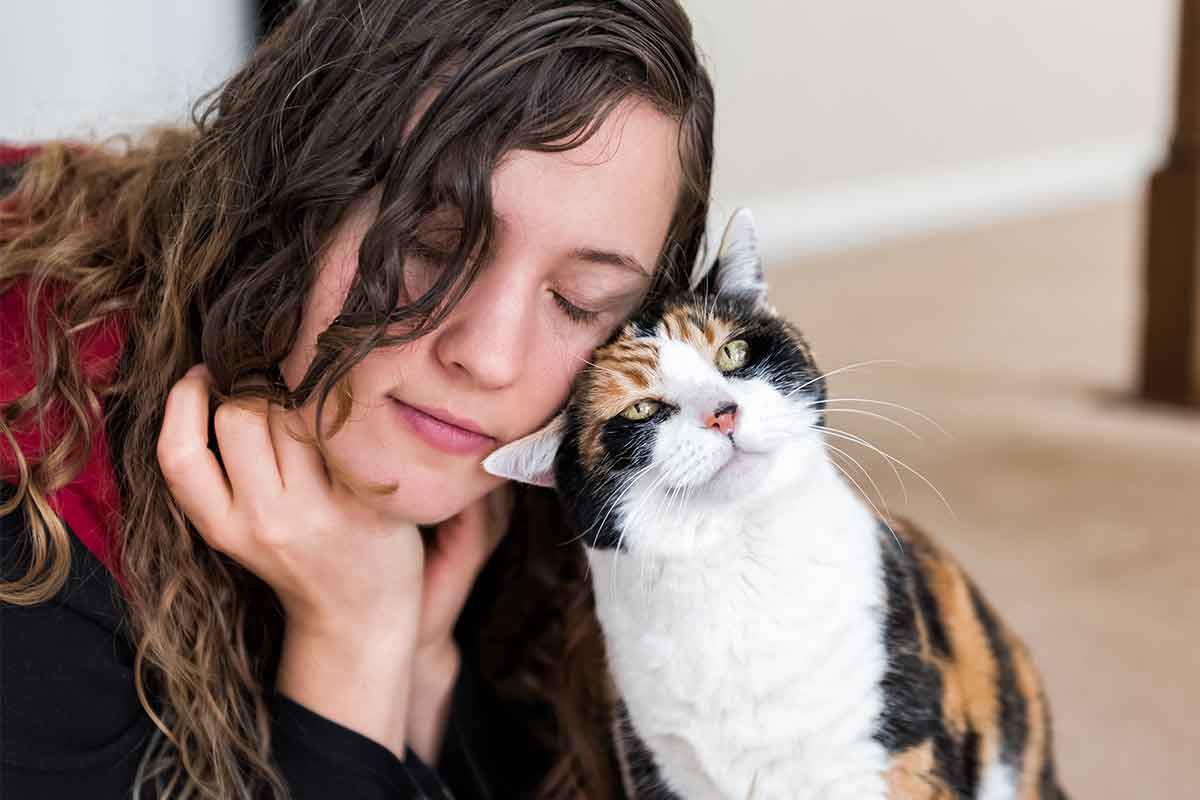It’s long been a kind of running joke in the popular media that cats don’t much care about their humans, and that as long as we feed them, they’re just fine. A spate of studies that came out a few years ago, most of which were not well designed and were even less well understood in the press, seem to confirm that.
“Science Confirms It: Cats Don’t Love Us” said one headline, describing a 2013 study that measured cats’ reactions to recordings of their owners saying their name. The cats simply looked for the source of the sound, and the researchers concluded that they just didn’t care that the sound was made by their owners. A 2015 study (the Washington Post headline was “Your cat might not really care about you, study suggests”) put cats alone in a room with a stranger or with their owner, and, because the cats did not respond the same way dogs and human babies did in the same experiment, concluded that the cats were not attached to their owners.
Testing cats’ attachment to humans by checking their response to recorded sounds (which they may not perceive the same way we do) or comparing them to other species has more flaws than I can enumerate in this short article. But those two studies got a lot of media attention, because they confirm a popular social stereotype.
Two more recent (and better designed) studies got a lot less media attention and found that cats care more about humans than they do about food, and really miss us when we’re gone.
What The Science Shows
One, by researchers at Oregon State University’s Human-Animal Interaction, looked at both shelter cats and owned cats. The cats got no food or attention for two and a half hours, and then were offered various stimuli, one at a time. In one session, a person (not the cat’s owner) spoke to the cats, and offered petting and a chance to play. In another, the cats could choose among food, a toy mouse with a shaker inside, or cloths scented with scents of catnip, another cat, or a gerbil. Then the cats were presented with all these things at once and got to pick what they wanted to interact with.
Less than half the cats chose the food, while exactly half chose the interaction with people. That was true for both the shelter cats and the owned cats. “Although it is often thought [that] cats prefer solitude to social interaction, the data of this study indicate otherwise,” the study authors wrote.
In the other study, done in Sweden, owned cats were left home alone for two periods—30 minutes and four hours. Owners were asked to behave as usual leaving and returning home. When their owners returned after four hours, all the cats purred more, stretched more, and interacted with their owners more than they had after 30 minutes. Most of the cats were free-fed, so anticipation of a meal was not a factor. “The increased level of social contact initiated by the cats after a longer duration of separation indicates a rebound of contact-seeking behavior, implying that the owner is an important part of the cat’s social environment,” the researchers wrote.
What does this mean for cat lovers? First of all, when your smug friends suggest your cat doesn’t care about you, you can tell them that science has proven that’s not true. But it also means you can’t leave your cat home alone for the weekend with a pile of cat food and an extra litter box. She will miss you—a lot.
Think about it: When you go away, your cat has no idea if you are ever coming home again. That’s especially true if you typically leave the house at 8 in the morning and come home at 6 in the evening. A few hours later, you could be gone for good. So in addition to concerns you might have about her physical health and wellbeing (if anything goes wrong, you wouldn’t be there to help), the possibility that she might snarf up all her food in a few hours and go hungry for the rest of the weekend, and the fact that her litter box is filling up with stuff that needs to be scooped, your cat is also stressing out because you’re not there.
Does this mean you can never go away? Of course not! While there’s no substitute for your presence, the first study showed that interactions with strangers also matter to cats. That means a cat sitter, a neighbor, a friend. Someone should look in on her at least twice a day, give her fresh food and water, scoop the box, and play with or pet or just sit down and talk to her—whatever level of interaction she craves. She’ll still miss you, but at least you’ll know she’s safe, and interaction with any human is better than nothing at all.
This article was reviewed/edited by board-certified veterinary behaviorist Dr. Kenneth Martin and/or veterinary technician specialist in behavior Debbie Martin, LVT.








